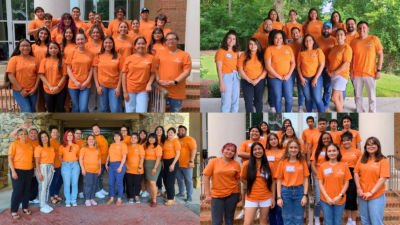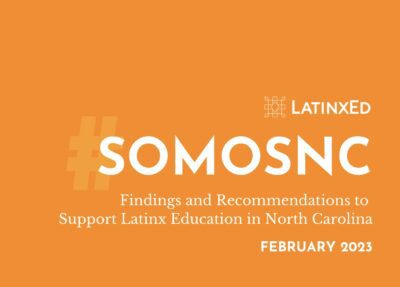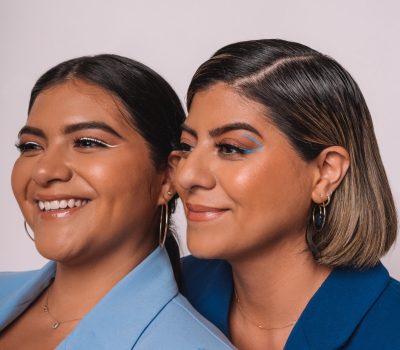

|
|
Situated in eastern North Carolina, Casa Azul de Wilson’s name pays homage to the “Blue House” of the renowned Frida Kahlo, a present day museum honoring her legacy in Mexico. What began as a meet and greet with Latinx professionals for high schoolers in Wilson has since transformed into a nonprofit organization focused on the empowerment of Latinx families in the region. In their return home, two sisters have embarked on a leadership journey that they consider challenging but fruitful.
Born and raised in Wilson
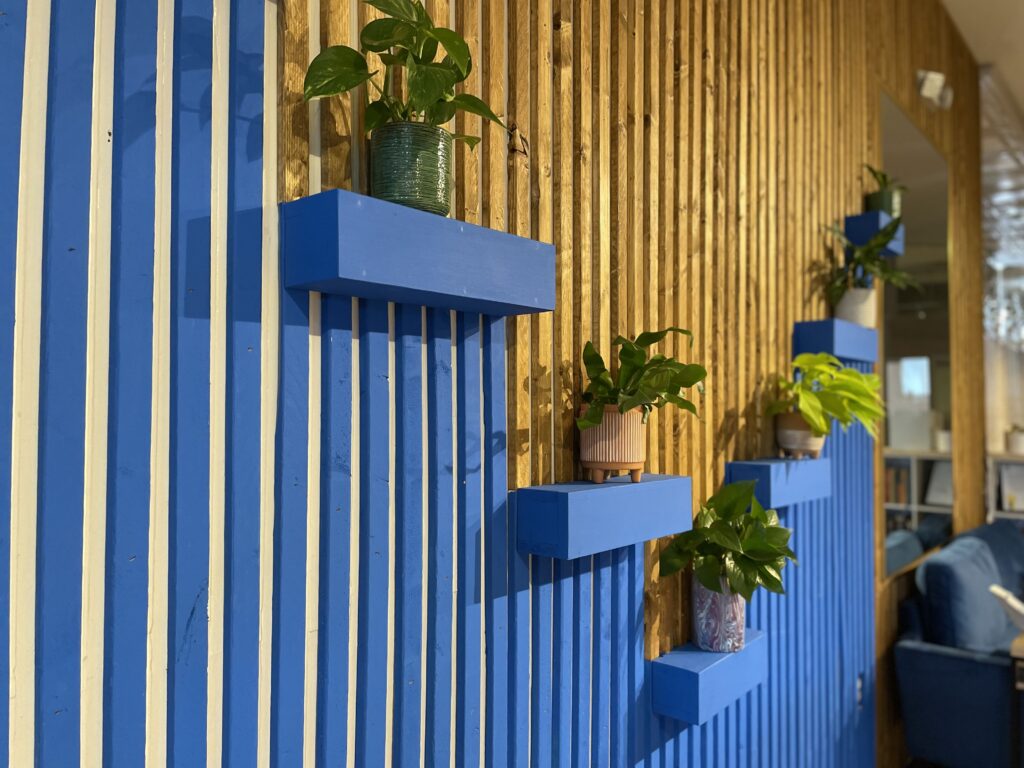

Despite the blue being referenced in the organization’s name, those who enter Casa Azul’s office space are immediately greeted by multiple vibrant colors, cultural patterns, and a large painting of the iconic Selena Quintanilla. The cozy home-like atmosphere is attributed to the creative genius of Casa Azul co-founder and executive director, Flor Herrera-Picasso.


Born to parents who immigrated from Mexico, Herrera-Picasso is the oldest of 10 siblings. She describes her experience growing up in Wilson as painful and traumatic. More specifically, she recalls the feeling of having to dilute her identity to try to fit in as the only Latina in many of her classes. Thus, she deemed pursuing college and ultimately leaving North Carolina a necessity.
“I swore that I would never come back to Wilson,” she said.
Herrera-Picasso would go on to successfully complete a bachelor’s in business administration and a master’s in textile and apparel design from North Carolina State University. After, she followed through on her vision to leave N.C. in pursuit of her dream to be a fashion designer in New York City.
Away from home
Though six years younger than her oldest sibling Flor, Iza Herrera shared similar challenges with her academic experience in Wilson. Herrera is the co-founder and director of community advancement at Casa Azul.
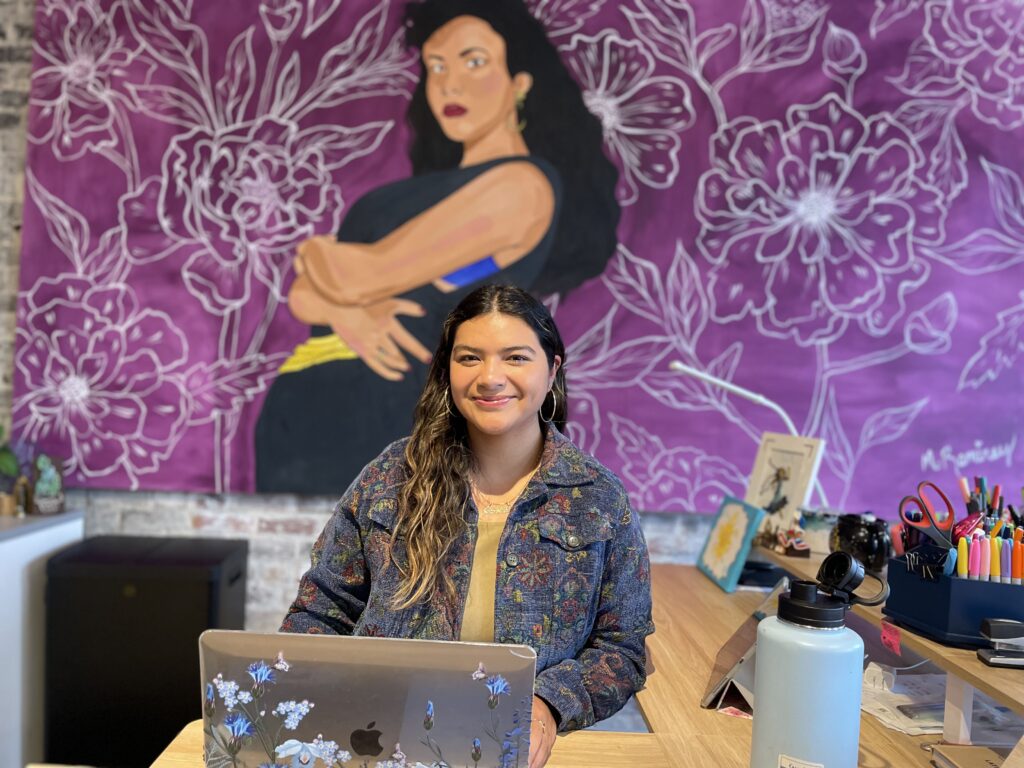

“I had one identity at school and one identity at home,” she explained.
For Herrera, the phrase “ni de aquí, ni de allá” (not from here or from there) not only applied to the experience of being first-generation children to parents that immigrated from Mexico, but also to the disconnection and lack of belonging that she felt in school.
While the rigor of college presented obstacles, attending UNC Chapel Hill allowed Herrera to explore.


“I feel like it was the first time I was able to merge my identities — my academic with my Latina,” she said.
While initially she dreamed of becoming a doctor, during this period, Iza unveiled her power of mentoring and connecting with people. In what was supposed to be a gap year after college prior to medical school, she found great success with the College Advising Corp.
Placed at a school with over 60% Latinx students, Herrera flourished in her ability to establish and maintain relationships with both students and parents. This experience would later prove to be an asset to her role in the development of Casa Azul.
Returning home
The year 2020 presented the opportunity for Herrera-Picasso to reassess her current position. After over three years in the fashion industry, she became disenchanted with the superficiality, waste, and the suppression of women in developing nations. Additionally, the impact of the pandemic, Black Lives Matter protests, and the presidential election were all signs that she needed to make a switch.
Following her return home, Herrera-Picasso recalls feeling that there wasn’t much being done in her community to address social justice issues in that period. Despite feeling like she wasn’t the best person to do something, she was willing to step up. She asked her younger sister Iza, “How can I bring you to Wilson?” Together, the two sisters formed Casa Azul.
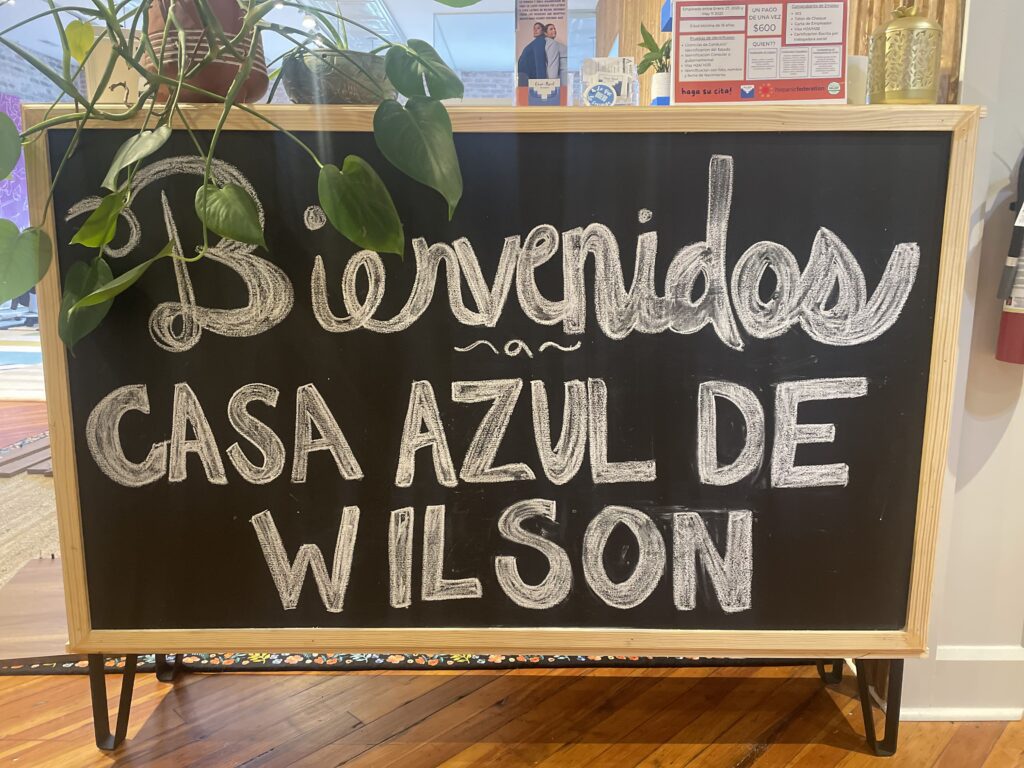

About Casa Azul
One of Casa Azul’s earliest events focused on exposing Latinx youth in their community to Latinx professionals in various fields. Supporting students with college preparation and voter registration was also a significant effort in their beginning stages.
Since then, they have attained nonprofit status and developed four pillars for their work:
Education equity: Casa Azul provides comprehensive college advising in both Spanish and English in addition to interpretation services and language justice in the school. This includes actions such as advocacy at board of education meetings. They also offer a $1,000 scholarship to three college bound Latinx students each year. The title of the scholarship is “Lo Que Quiero Lo Consigo,” which translates to, “What I want, I attain,” aligning with their belief that determination is key in order to attain goals as first-generation students.
Culture: Casa Azul is intentional about helping their community experience joy through celebrating their identity. They host several cultural events, including Latinx Heritage Month and Día De Los Muertos programming. One of their biggest events is their Selena festival, paying homage to identities as bicultural and bilingual people.
“We never had those platforms when we were growing up, so we created those platforms today for the kids that are in Wilson now that they could just experience joy,” Herrera stated.
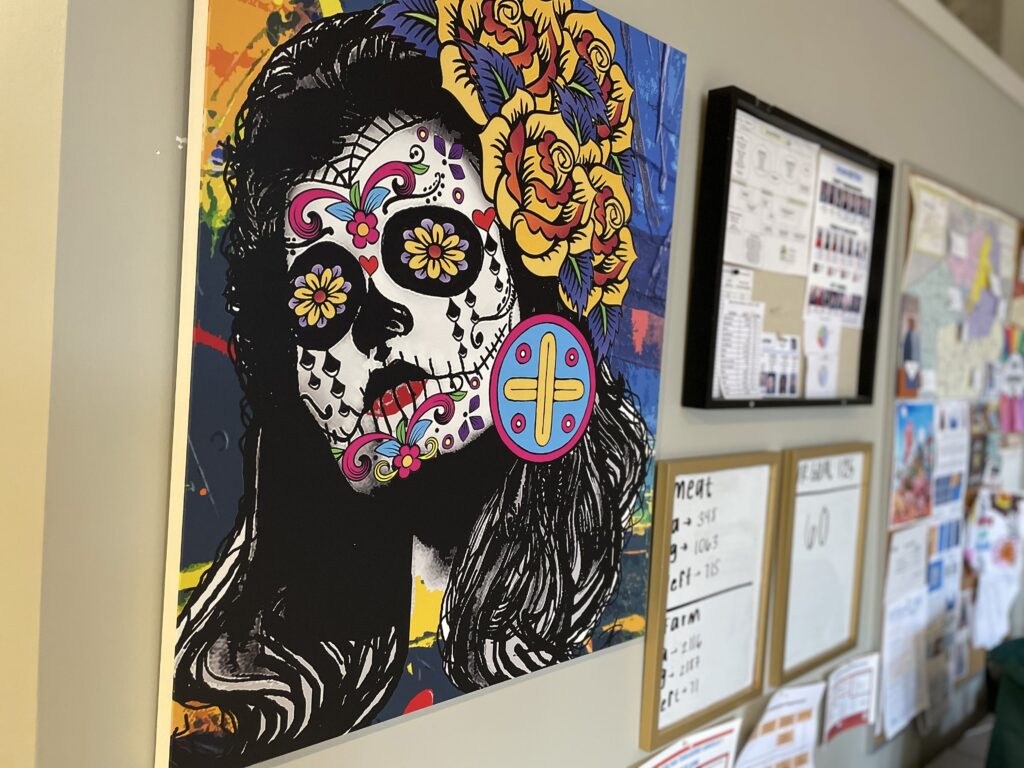

Civic engagement: According to Herrera-Picasso, this pillar is significant because despite the Latinx community being about 10% of the population in Wilson, they do not have representation in local government. Much of their work in this area has included voter registration. Ideally, in the near future, they would like to focus on leadership development and education on civic engagement in order to spark more participation and representation.
Direct service: This area overlaps with the other pillars. It started as interpretation services, supporting individuals at court appointments, school meetings, doctor visits, and so forth.
“That’s the biggest need and the biggest barrier for my community, the language barrier,” Herrera-Picasso shared.
Another example was their support with COVID-19 relief funding, distributing gift cards of $100 to families of students at local schools. Also, through a grant with the U.S. Department of Agriculture, they distributed $600 gift cards to farm workers. According to their website, in this effort, Casa Azul was the single organization to distribute the largest amount of financial relief in the state of North Carolina through their partner Hispanic Federation.
Hopes for the future
Casa Azul has been able to make great strides since their start. Yet, the two sisters are open about the challenges and sacrifices of running the organization. They’re cautious not to glorify the hustle and grind of the work, but admit that it has been their reality, especially at such an early stage in their organization.
Particularly for two individuals who didn’t enter with prior nonprofit experience, they said they are learning a lot as they go.
“We had to learn fast, and we had to go at 200 miles an hour. And we’ve been going at that pace for two years now, since 2021,” Herrera-Picasso stated.
Aside from temporary volunteer support, the workload is often carried by just the two of them. Both expressed that the weight can at times take a toll on their relationship as sisters.
Yet, they also mutually expressed that they would not have wanted to endure this leadership journey with anyone else. While there have been hardships along the way, they’ve found beauty throughout, particularly in the statewide community that they’ve built with individuals fighting for the same causes.
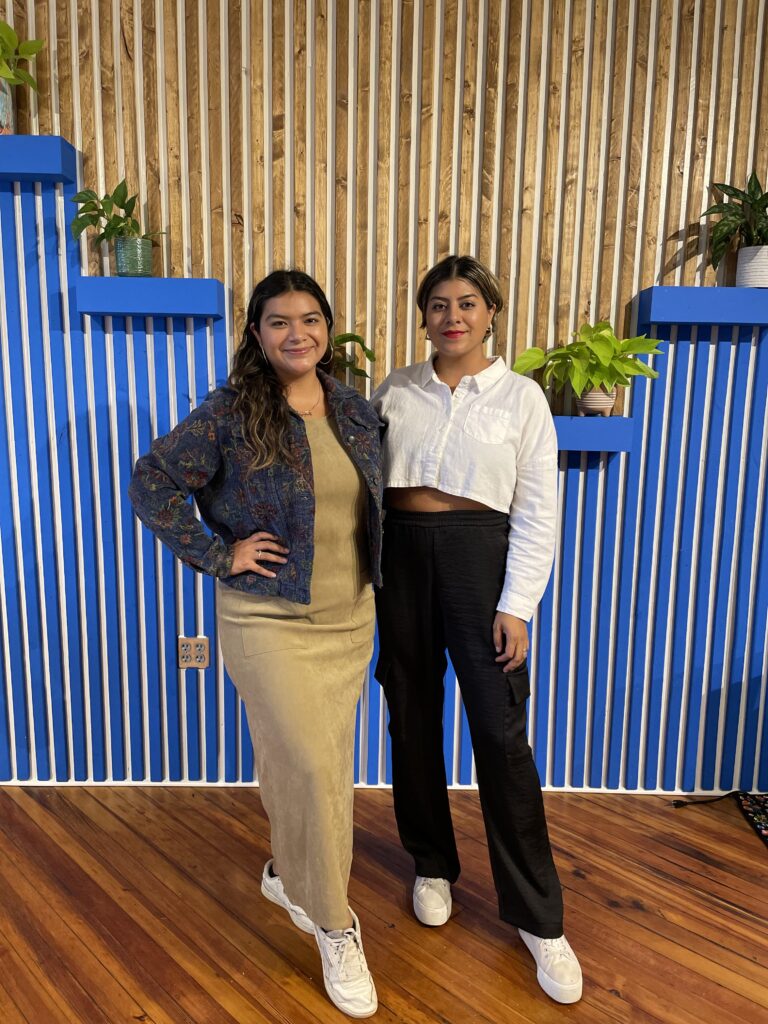

Two sisters from a small town in eastern N.C. left home but returned to make a difference. Despite not feeling like the best people for the job, they created something that didn’t exist. As a unit, Casa Azul continues to seek avenues to make their work more sustainable and to remain committed to their mission statement: “Providing a homebase for Wilson’s Latinx families to feel valued so that they may own their power and ascend in their educational, leadership and civic pursuits.”



